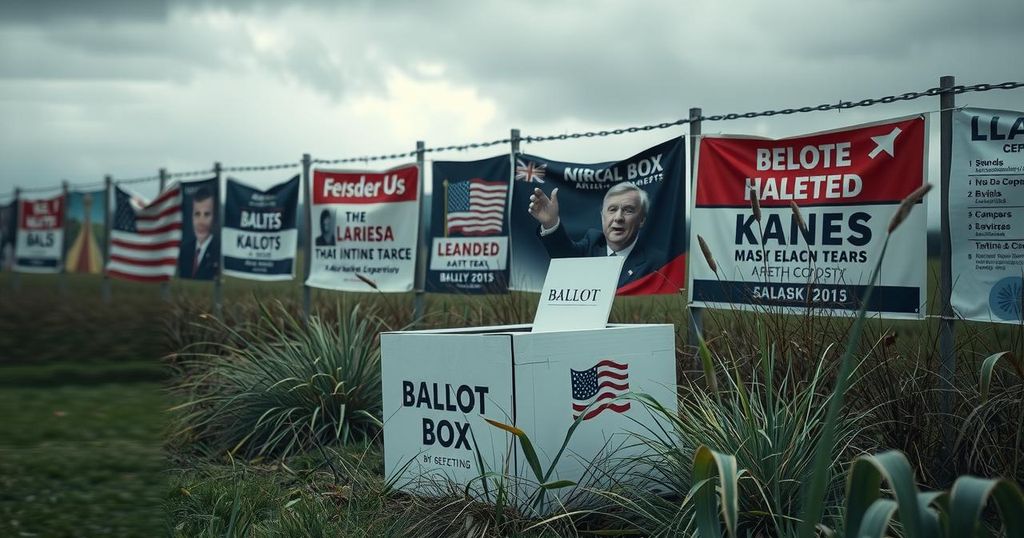World news
ASIA, ATLANTIC COUNCIL, DW, EUROPE, EUROPE/ASIA, EUROPEAN UNION, HERBST, INTERNATIONAL RELATIONS, JAPAN, JOHN HERBST, KEITH KELLOGG, KELLOGG, KYIV, MOSCOW, NORTH AMERICA, PEACE NEGOTIATIONS, PIERS MORGAN, PUTIN, REUTERS, RUSSIA, RUSSIA-UKRAINE WAR, THE, THE ATLANTIC COUNCIL, TRUMP, UKRAINE, UNITED STATES, US, US PRESIDENTIAL RACE, USA, VLADIMIR PUTIN, VOL, VOLODYMYR ZELENSKYY, WAR, WASHINGTON, ZELENSKYY
Oliver Grayson
0 Comments
Ukraine’s Presidential Elections: Will They Occur in 2025?
Ukraine’s presidential elections, postponed due to the war with Russia, face challenges as President Zelenskyy awaits the end of martial law to hold them. The U.S. encourages elections if a truce is achieved, while Russia insists on elections before negotiations. Experts warn against premature elections, citing instability and security concerns, with estimates suggesting less than a one percent chance of elections occurring in 2025.
Current discussions surrounding the possibility of Ukraine holding a presidential election in 2025 are intensifying. Following the postponement of elections due to the ongoing war with Russia, President Volodymyr Zelenskyy asserts that elections will occur once martial law is lifted. As the war continues, Ukrainian leadership faces external pressures, particularly from the United States, to facilitate democracy by resuming electoral processes.
Recent comments by Keith Kellogg, the U.S. special envoy for Ukraine and Russia, emphasize the United States’ stance on promoting elections in Ukraine, potentially by this year if a truce with Russia is achievable. Critics point out that holding elections amid ongoing conflict could jeopardize Zelenskyy’s legitimacy, as Russia maintains that Ukraine must conduct elections after the war.
Ukraine’s constitution prohibits elections under martial law, complicating the political landscape. Russia has indicated that any negotiations to conclude the hostilities are contingent upon the Ukrainian elections. Although Zelenskyy has expressed a willingness to conduct elections, he underscores that specific conditions must be met to ensure stability and fairness in the electoral process.
Experts caution against rushing elections in the current environment. Thomas Greminger, a former OSCE secretary general, warns that significant portions of Ukraine remain under Russian control, inhibiting the potential for fair elections. John Herbst, a former U.S. ambassador, echoes concerns that nation-wide safety and democratic integrity are at stake during a potential electoral process.
Conditions outlined for possible elections include establishing a demilitarized zone, bolstered arms support for Ukraine, and the presence of international troops. Both Herbst and Greminger agree that achieving a stable ceasefire is essential before considering elections, with optimistic predictions placing the chance of elections in 2025 at a meager one percent.
In summary, while there is increasing dialogue regarding Ukraine’s electoral future, realistic assessments highlight the ongoing conflict and complications posed by the current political climate. Many experts urge caution, emphasizing the need for stability before Ukraine considers moving forward with electoral processes.
The question of holding presidential elections in Ukraine arises against the backdrop of an ongoing conflict with Russia, which has seen significant military engagement since 2022. The inability to conduct elections under martial law presents legal and constitutional challenges, further complicated by international pressures, particularly from the U.S. The situation is also influenced by Russian maneuvers to undermine the legitimacy of the Ukrainian government, as well as local sentiments surrounding the war and governance amidst instability.
In conclusion, the viability of holding presidential elections in Ukraine in the near future is severely hindered by the ongoing war and the constitutional provisions prohibiting such actions under martial law. While the U.S. is advocating for elections to promote democratic processes, significant experts remain skeptical about the conditions necessary for free and fair elections being met in the current volatile environment. A stable ceasefire and significant political preparations appear essential before proceeding with electoral plans.
Original Source: www.dw.com




Post Comment